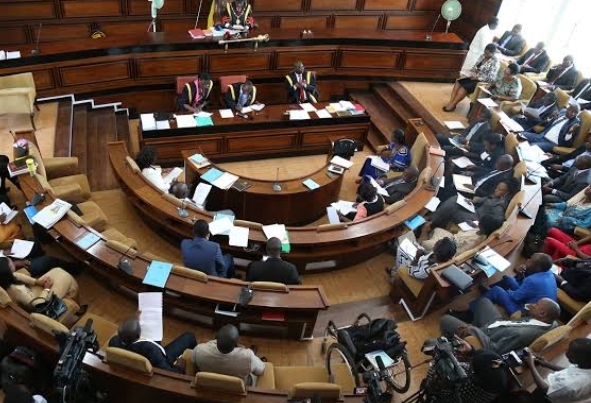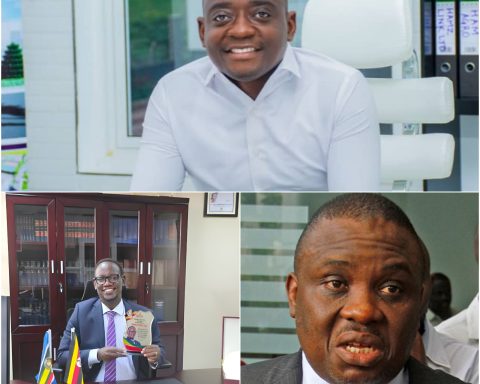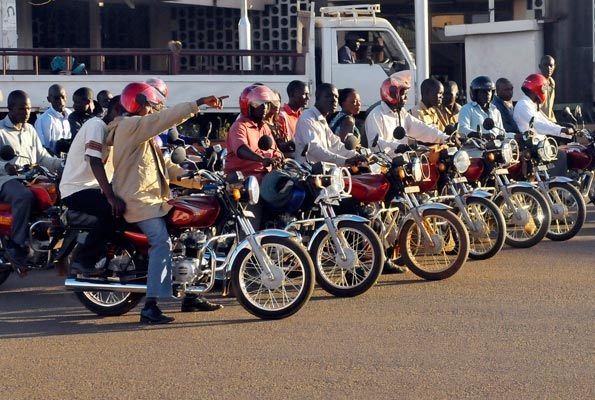Kampala Division councilors have halted the budgeting process for the FY 2025/2026 demanding full devolution of power to their respective city divisions.
The unanimous decision was made at a stakeholders’ meeting attended by the Kampala Capital City Authority-KCCA executive committee, councilors, division mayors, and the technical wing, and chaired by Lord Mayor Erias Lukwago in the Mayor’s Parlour.
During the meeting, Lukwago told city councilors, mayors, and division speakers that the KCCA council had passed a resolution for devolution of power in 2016. However, since the resolution was passed, no significant steps have been taken by the central government to operationalize it, so that division urban councils can make their own budgetary appropriations as the amended KCCA Act stipulates, Lukwago remarked.

The Lord Mayor also pointed out that KCCA has continued to operate with one consolidated vote number 122 and one accounting officer, instead of six separate votes for the authority and the five divisions.
Lukwago noted that the operation of a single consolidated vote by KCCA is a violation of Section 13 of the Public Finance Management Act of 2015, as well as Sections 28B, 32, 35, and 53 of the amended KCCA Act.
Lukwago emphasized the need for urban councils to be empowered financially to conduct their own business.
Steven Mayombwe, a councilor from Luwafu in Makindye Division, mentioned that the only thing they can do in their council is produce a wish list of the things they want to be done in Makindye, which he said is inappropriate.
He added that even when they submit their wish list to the authority at City Hall, nothing materializes or gets funded. Mayombwe insisted on full devolution, regardless of the consequences, as long as they achieved their desired goal.
Baker Kisaalita from Kabalagala said that the town clerk in a division does not have the power to procure anything; everything is left to KCCA at City Hall.
Andy Simon Kaweesa from Kawempe stated that he intends to sue KCCA to ensure that the resolution by the council is operationalized.
Kaweesa faulted his fellow councilors from Kawempe for refusing to attend meetings called by the Lord Mayor, accusing them of claiming that the Lord Mayor is frustrating the devolution process for selfish reasons, which he argued is wrong.
Shamim Nassali from Makindye Division differed from the others, saying that halting the KCCA budget process would cripple many works in the divisions. Nassali argued that the budget process should proceed so that activities in the divisions can continue.
Nyende Allan Saava from Lukuli in Makindye stressed that as leaders of Kampala, they must stand in solidarity to achieve the long-awaited devolution of power.
Nyende advocated for full devolution, urging the central executive committee not to pass the budget unless they achieve the desired goal.
During the meeting, Lukwago also mentioned that 50 percent of the revenue collected by KCCA comes from the property tax fund, but unfortunately, none of the funds collected is remitted back to the divisions to address pressing community issues.
According to the law, 75 percent of the money collected from property rates tax is supposed to go back to the divisions to fund development projects.
In FY 2023/2024, Kampala central collected a total of 39.898 billion shillings, with Nakawa Division collecting 18.748 billion, Makindye collecting 16.031 billion, Lubaga collecting 9.453 billion, Kawempe collecting 9.395 billion, and KCCA headquarters at City Hall collecting 20.830 billion.
Ezra Sebuufu, the head of the Revenue Collection Directorate at KCCA, confirmed that 50 percent of all revenue collection comes from property rates tax.
With all this ongoing, Section 9(2) of the Public Finance Management Act of 2015 tells KCCA to prepare and submit the budget framework paper to the Ministry of Finance, Planning, and Economic Development by November 15 this year. (urn)
![]()



























